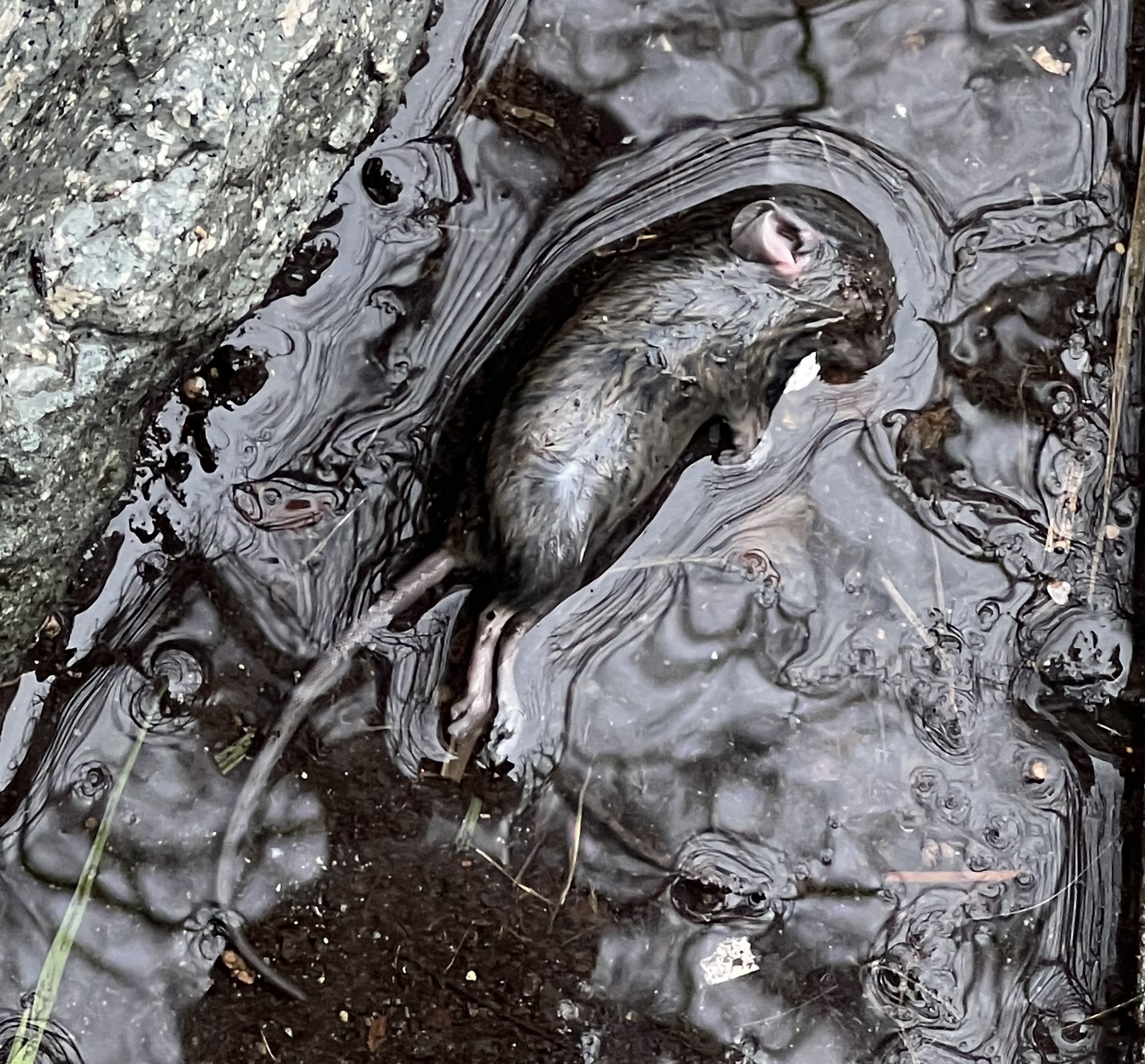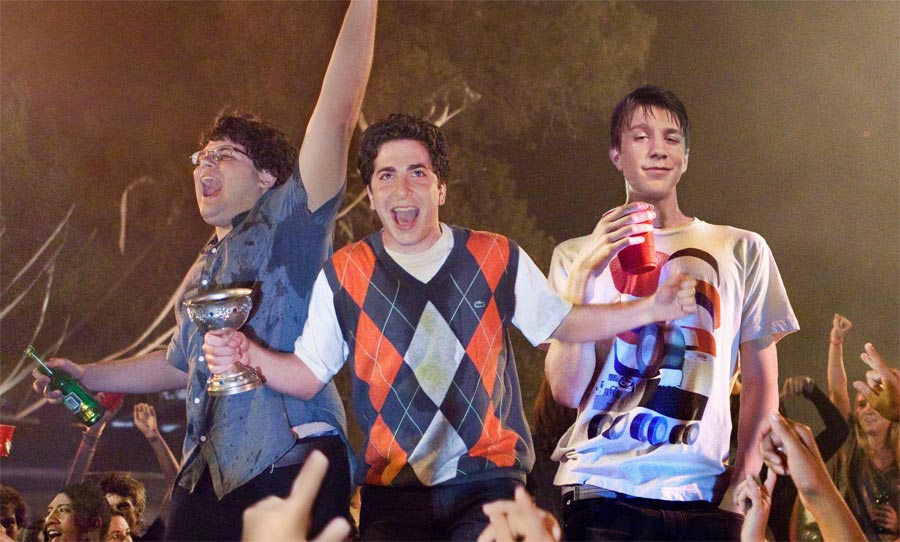The way in which I see, judge and relate to people has suffered radical transformations throughout my life. In some cases, the change has been effected by particular events that have left indelible marks on me. In other, my perspective has evolved as an inevitable byproduct of the process of maturation. The point is that both epiphanies and gradual changes have proved themselves capable of influencing the way I perceive the world, life, and people.
Whatever the reason for each shift in my perspective, the tendency is that said changes become an intrinsic part of the way I see the world, without requiring any conscious effort on my part. This is what happened when I understood that human beings are, by nature, imperfect, and I lost my ability to hate people.
In my eternal introspective exercise, I’ve come to a particular conclusion. It was the combination of three sets of ideas and experiences that, collectively, transformed my perspective, to the point where my relationship with hatred ended.
It is worth mentioning that my evidence is empirical in nature and I haven’t searched for any studies that may back it. Again, this is merely an introspective reflection. The three elements I discuss are the following:
- Understanding the intrinsic subjectiveness of history
- Empathizing with those that hurt us
- Watching a loved one fall from their pedestal
Important clarifications:
- Not hating doesn’t mean not feeling anger (anger is important).
- When I say “I’m incapable of hating people”, I don’t mean I can consciously turn hatred off. I don’t decide not to hate, it’s just that the way I understand human nature has as a direct effect that I don’t produce said feelings (at least during the last few years) with relation to any person. This point is key.
- I don’t intend to convince you that this is an infallible formula to reach a superior state of humanity, much less do I mean to imply that I have reached such a state.
- I am certainly not under the impression that not hating people turns me into a fundamentally better person than the average human being.
It is precisely the point of this reflection that no person, whatever their actions, beliefs, or thoughts, is better than any other.
Understanding the Intrinsic Subjectiveness of History
A World Without Heroes or Villains
History, ever subjective, is filled to the brim with both heroes and villains. Sometimes, the lines are clear and, as time goes by, they are maintained and unchanged. Great examples of said reality are historical characters such as Galileo Galilei and Adolf Hitler. Galileo’s contributions, however costly they turned out for him, propelled humanity forward in an unarguable fashion. Hitler’s, on the other hand, severely pushed humanity back, with even less room for argument, in a tragic and horrific way.
Some examples are not quite as clear.
Many of us learn in our youth, be it from our parents (innocent in this case) or catholic clergymen (not as innocent in this instance), that Mother Theresa of Calcutta was the clear picture of sainthood. After all, she dedicated her life to the aid of the poorest and most defenseless people in the world.
Then we grew up and started reading and learning for ourselves. We found out that her “medical centers” for the poor operated under deplorable conditions which, in most cases, aggravated their patients’ ailments. It also turns out that she was one of the main drivers of the Catholic Church’s campaign to promote the fact that “Yes, HIV/AIDS is bad, but condoms are sinful and their use forbidden.”
Think of what this campaign did to an Africa that already had an HIV/AIDS epidemic by then, or an India where overpopulation was already causing economic struggles.
Everyone will have their own opinion on the merits of Mother Teresa and this campaign. From a completely objective perspective, however, it is evident that this campaign has dealt great damage, whether directly or indirectly, to the lives of thousands of people, particularly affecting women in the poorest and least educated sectors.
With the perceived impact inflicted on the aforementioned demographic, it could be objectively argued that Mother Teresa of Calcutta contributed directly, through her platform and authority, to the perpetuation of poverty and the impediment of economic development. After all, and as one of the most important intellectuals of the 21st century, Christopher Hitchens, insisted, it is well known (by sociologists anyway) that one of the keys to economic development is the empowerment of women, especially in what concerns their sexual health.
Thus we reach the conclusion that the revered Mother Teresa, who was canonized (declared a Saint) by Pope Francis in 2016, is not the heroine we so innocently believed here to be. At least not as absolutely and purely as we believed. In the same way, countless idealizations of historic figures, who were sold to the masses as black or white but turned out to be gray, fall in the face of our inevitable exposition to the truth.
These are the cases of people such as Christopher Columbus, Porfirio Díaz and Winston Churchill. We grow up believing they are either absolute heroes or absolute villains, only to find out that they contributed to both good and bad in varying quantities.
So, what exactly is the lesson here?
There are no heroes or villains. At least not in any absolute way.
I could provide a description of Hitler, omitting certain details, but maintaining absolute precision and veracity in the characteristics I ascribe to him, in such a way that without knowing who I’m describing, you may catalog him as a decent human being. This would not, in any way, erase the atrocities that were committed under his influence, direction and leadership.
The important thing here is not whether Mother Teresa wasn’t as great as we thought or whether someone could confuse Hitler for a decent guy. The important thing is understanding that any character in history is just as human as every other. They are all just as capable of doing good as they are of doing bad. They’re all capable of achieving the greatest feats, as well as making the greatest mistakes. This can be generalized, not just to the rest of history’s (most of the time exaggerated) finest examples, but to any real person you may know.
In the same way, you can learn disappointing truths about your parents, siblings, grandparents, children, friends, teachers, significant other(s) or even yourself. This will not render them people unworthy of your love, respect and affection.
Empathizing with Those that Hurt Us
My Experience with Hatred
Those who know me may already know this. Those who don’t will probably not be surprised. My experience in basic education was, outside the academic, pretty tough. For years, I suffered an exceptional amount of verbal and psychological harassment at school. I mean since I can remember in elementary school practically up to the day I graduated middle school. It is worth mentioning I always had friends and, within my own school, others had it much worse. My greatest regret is not doing more for those other kids.
My bullies? At first, I hated them. In many cases they made me feel I was insufficient. In others they simply exhausted my patience, not because their words hurt me, but because they were relentless and wouldn’t leave me alone. With time I realized that they lost the ability to hurt my feelings. Their insults and continuous harassment simply became a source of stress and desperation. They turned more into a torture by endless repetition than what we today call “bullying”.
What really matters in this case is not as much my experience, but my reaction. At first, I only asked for them to stop. I tried this for a long time and I was, in every sense of the word, a victim. I felt bad for myself, but I didn’t necessarily understand that what was being done to me was wrong.
Eventually, as they escalated conflict, I started antagonizing them. In the movie of my life, I was the hero and they the villains. Every negative aspect of my life was caused and attributed to them, the agents of the world’s cruelty suffered upon me. I really hated them. I didn’t ever wish them any serious harm, but in a way, their misfortunes made me feel better. Whenever one of them would get a bad grade on an assignment, I saw justice in the world.
I came to shove it in their face. I informed them, quite innocently, that they were envious of me (for whatever reason) and that that made them feel the need to harass me. In more than one occasion I suggested they were careful with how they treated me, because they would eventually work for me (boy, did those Bill Gates urban legends make me go through moments that are embarrassing in retrospect). I took a defensive attitude which, although justifiable, was nothing more than fighting fire with fire. In my youth, tired of being a victim, I told my aggressors things that could have hurt them as much as they hurt me.
It is impossible to know for certain, but I’m convinced that I contributed to aggravating whatever insecurity, personal problem or situation that may have caused them grief and they sought, through harassment, to heal.
Then I matured. Between the harassment, math exams, my developing social life, and the pains of adolescence, my perception changed. After being exposed, for such a long time, to the irrational attitudes that lead my classmates to inflict upon me so much suffering, I had no other choice than to try to empathize. I got to know them more intimately.
Some became my friends, which, retrospectively, seems pretty normal. When the opportunity arose, I sought ways to help them. Through that, I saw them for what they really were. They were not the villains in my movie. I wasn’t the hero either. We were all human beings. Insecure, imperfect, intelligent in ways I never imagined, and even funny in the right context.
Even when the harassment continued, maybe in a more moderate, but constant way, I came to lose the grudges I had developed against them. I stopped blaming them for acting like the children and adolescents they had, at the time, been. I’d like to be clear. What they were doing was wrong and I knew it, but while understanding them, I could not bring myself to blame them.
No matter how hard I tried, I could not hate them anymore.
I could’ve claimed to “hate them on principle”, but I would’ve just been deceiving myself.
Watching a Loved One Fall from Their Pedestal
When Your Role Model Fails to Meet Your Expectations
I’ve come to believe that it is an inevitability in the life of every individual that they will, at some point, be disappointed by some (frequently all) of their loved ones. In this case, I apologize for not being able to share specific personal experiences to show what I mean. While I’m willing to discuss my personal life openly and with total honesty, I cannot betray the trust of those that are in my life by exhibiting their least flattering qualities and character defects, no matter how minor or anonymous they may be. In this case I beg of you, dear reader, be satisfied by an entirely conceptual exercise.
The most important role models we acquire throughout the natural course of our life tend to be people who have had a direct and intentional impact on us. I speak of our parents, siblings, grandparents, close friends, and academic, professional or even spiritual mentors.
These are heroes that, unlike the Einsteins, LeBrons and Robert Downey Jrs. of the world, tend to be heroes only to us (or an extremely select few amongst the world population), and, at least during our childhood, they all share the same characteristic:
They’re infallibility makes them worthy of being put in their own pedestal within our perception of the natural world.
I repeat: The case I present here is merely a vehicle to my point, it is not based in my personal experience.
Let’s take a ten year old, for whom it is complicated to understand that their parents, who offer them nothing but unconditional love and protection could be anything less than perfect, as an example.
When said ten year old turned young adult inevitably finds out that, long before they were even born, their father frequently drove under the influence of alcohol, putting their own lives and those of others in danger, they suffer a disappointment. This is a disappointment of such a magnitude that, the now young adult, finds themselves forced to question their parent’s place in the aforementioned pedestal:
- “Is my father a bad person?”
- “What separates my father from all of those that I now consider deplorable beings for so irresponsibly risking their lives and those of others?”
- “Does a single vice, destructive habit, mistake or wrong deed invalidate the benevolent nature that I have thus far attributed to my parent?”
- “Is it valid to ignore this quality in my parent that I would find unforgivable in anyone else?”
In such a moment, the sensible young adult lowers their parent from the pedestal upon which they stood. After enough similar experiences with distinct people they overwhelmingly respect, the young adult may abandon the practice of putting people in pedestals altogether.
They stop expecting infallibility from beings that are, by nature, imperfect.
In other words, they realize we are all human, with everything that implies.
Then come the questions which, in my opinion, make our sensible young adult’s reflection a truly powerful one:
- “Is it right to assume that just because someone chooses to drive under the influence of alcohol, they are bad people who are deserving of my hate?”
- “Which of my father’s attributes must all those who I currently hate have in order to change the way I feel about them?”
- “Does a single virtue, constructive habit, success or good deed invalidate the malevolent nature that I have thus far attributed to those I hate?”
- “Is it valid to ignore those qualities that, in someone I love, would be admirable, just because I hate the person in question?”
Having brought all their heroes down from their pedestal, our young adult internalizes the corollary:
If my heroes don’t belong on pedestals because of their intrinsic fallibility, making them no longer heroes, it is possible that my villains deserve an equivalent consideration, making them, in turn, no longer villains.
This is the notion that, given the three elements previously discussed, defined my current perspective. Despite the love, care and respect I may have for a person, I am incapable of expecting absolute benevolence from them, whether or not they’ve disappointed me in the past.
By the same token, since my perception of human fallibility permeated my subconscious, I haven’t been capable of losing the intrinsic respect I have for all human beings or hating any person, whether dead, alive, or malevolent in a mediocre or exceptional way.
Having said all this, I don’t believe hatred is an unacceptable emotion. On the contrary, as a fundamental emotion of the human being, I find it is perfectly justifiable in many situations. I also have no intention of guaranteeing I will never feel hate again. It is simply the case that since my perspective changed, and up to now, I haven’t been able to feel hatred for anyone (and I genuinely hope it stays that way).
Nevertheless, I’d like to propose the following:
As human beings, imperfect but always in search of growth and self-improvement, let’s aim to save hatred for actions, attitudes, ideologies and beliefs that put the integrity of other human beings at risk, rather than the people who hold them themselves.
Share your thoughts
Finally, I’d like to leave you with some questions to reflect upon:
- When you say you hate a person, do you really hate them or do you simply hate something they said, believe or have done to you?
- Is there any experience someone you hate may have had that, if you found out, would make you stop hating them?
- How would you feel if you found out someone hates you for something you did or said if doing it or saying it wasn’t your intention (or you think it was justified)? Does this change your relationship with hatred?
Share your answer to these questions or suggest a topic for my next blog post in a comment below or write me a tweet @technicalboy__ or e-mail. Don’t forget to share this post on Facebook, Twitter or LinkedIn using the buttons below. If you like the blog, recommend it to your friends!




Comments